Auguste Rodin in 10 Sculptures
Auguste Rodin, hailed as the father of modern sculpture, transformed art with innovative techniques and emotional depth. He bridged the academic...
Jimena Aullet 6 January 2025
Discover the story behind the Spirit of Ecstasy which reads like the pages of a London gossip column from high society! Full of aristocratic benefactors, beautiful women, and clandestine affairs, this story spans centuries, weaving its way from Greek goddesses to the opulent world of modern luxury motoring. At its heart lies the iconic ornament adorning the bonnet of Rolls Royce cars—known as the Spirit of Ecstasy.
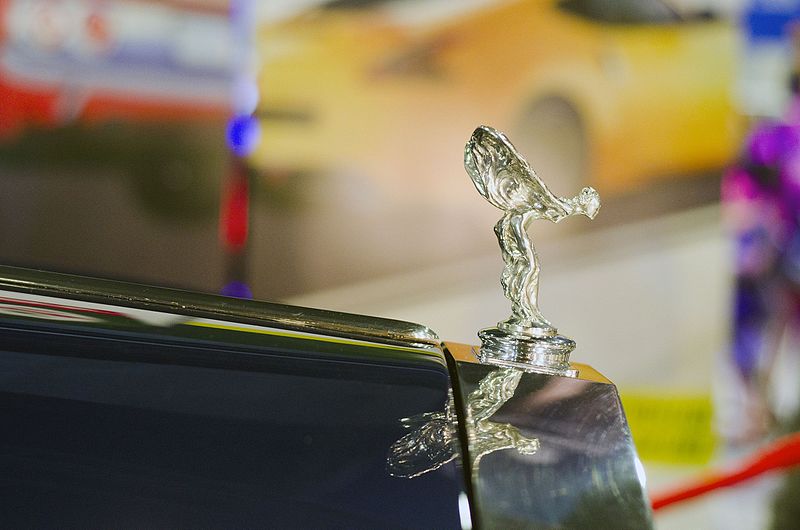
The Spirit of Ecstasy is the ornament found on the bonnet of the Rolls Royce car. It is in the form of a woman leaning forward with her arms outstretched behind and above her, billowing cloth running from her arms to her back, resembling wings. It has become an iconic symbol of luxury and elegance.
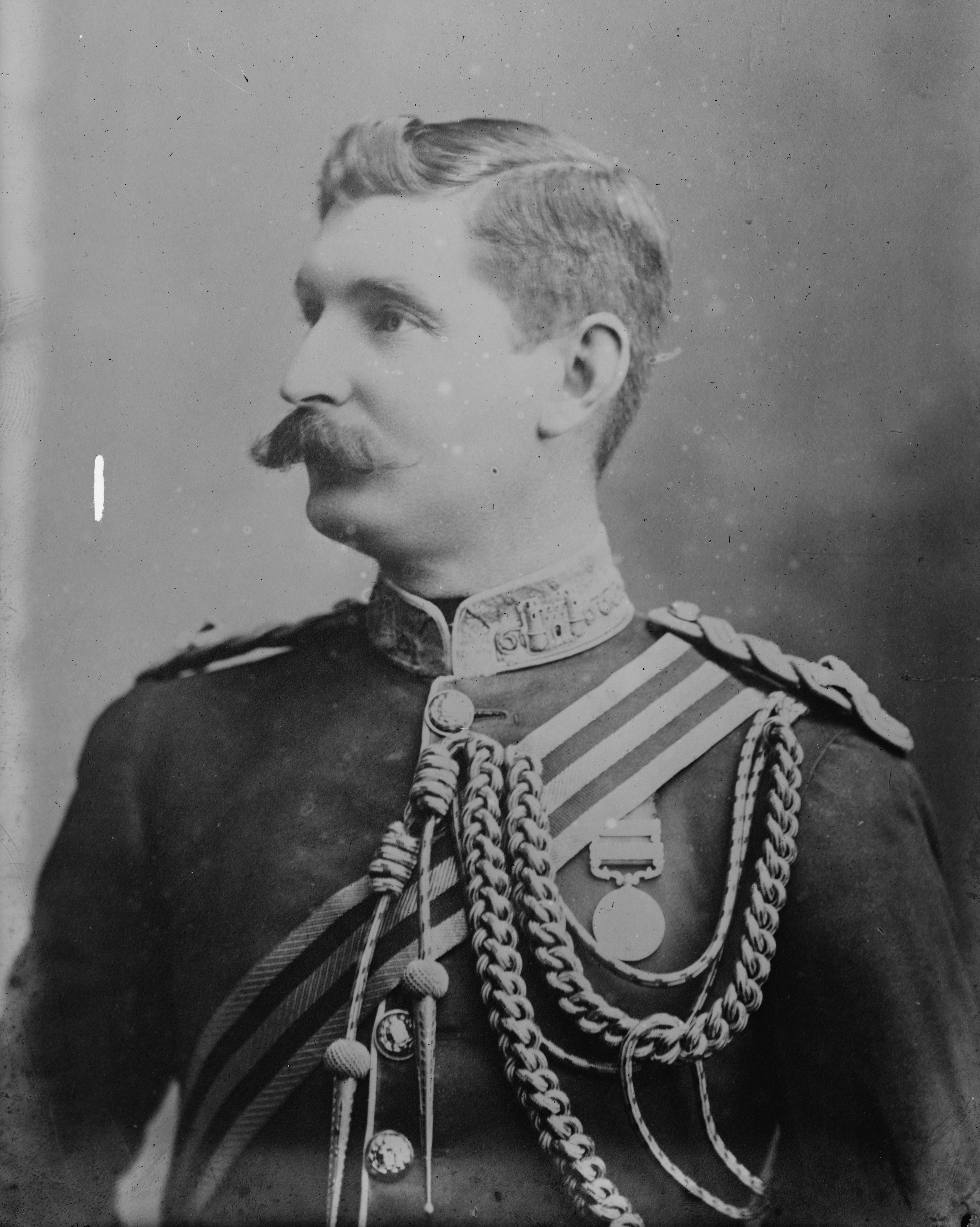
It was a British Conservative politician (and promoter of motoring) who commissioned the first of these bonnet ornaments. That was Lord Montagu – his full title is, in fact, John Walter Edward Douglas-Scott-Montagu, 2nd Baron Montagu of Beaulieu. But let’s stick with Lord Montagu! He approached his friend, the sculptor Charles Robinson Sykes, a Royal College of Art graduate, who developed the first figure as a woman standing on one foot, with her gown flowing behind her, holding one finger to her lips as if keeping a secret.
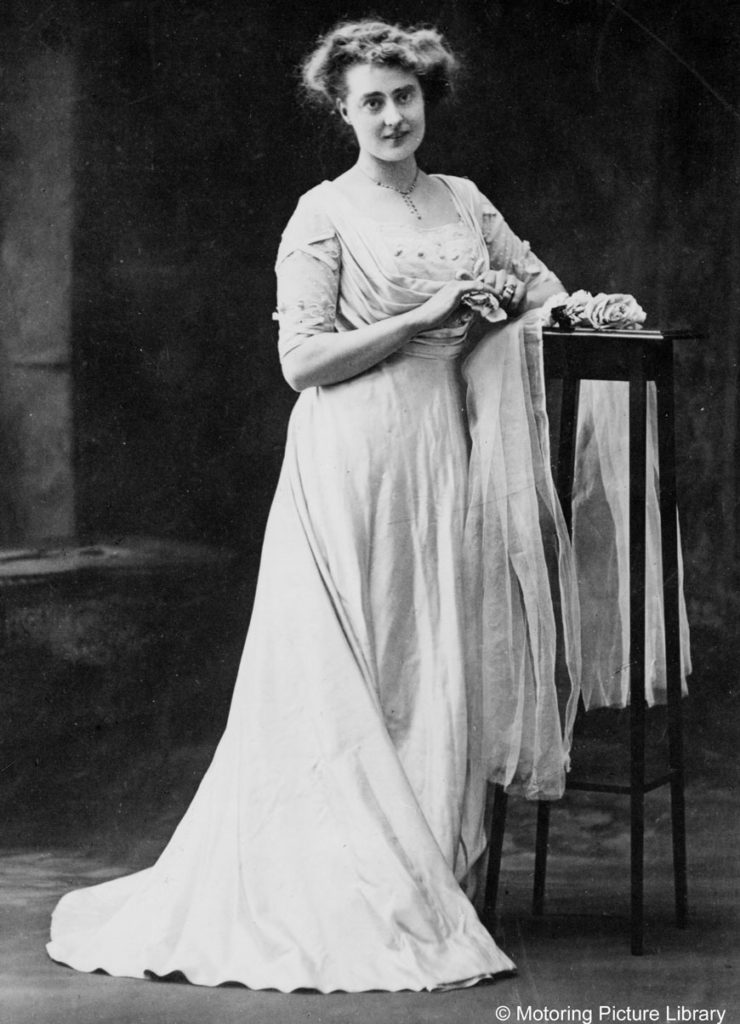
The model for the figure was Eleanor Velasco Thornton (known as Thorn). Only a few castings were made around 1911 and few survive. Thornton was secretary to Montagu and, as gossip would have it, mistress too. This figure made by Sykes was called, intriguingly, The Whisper.
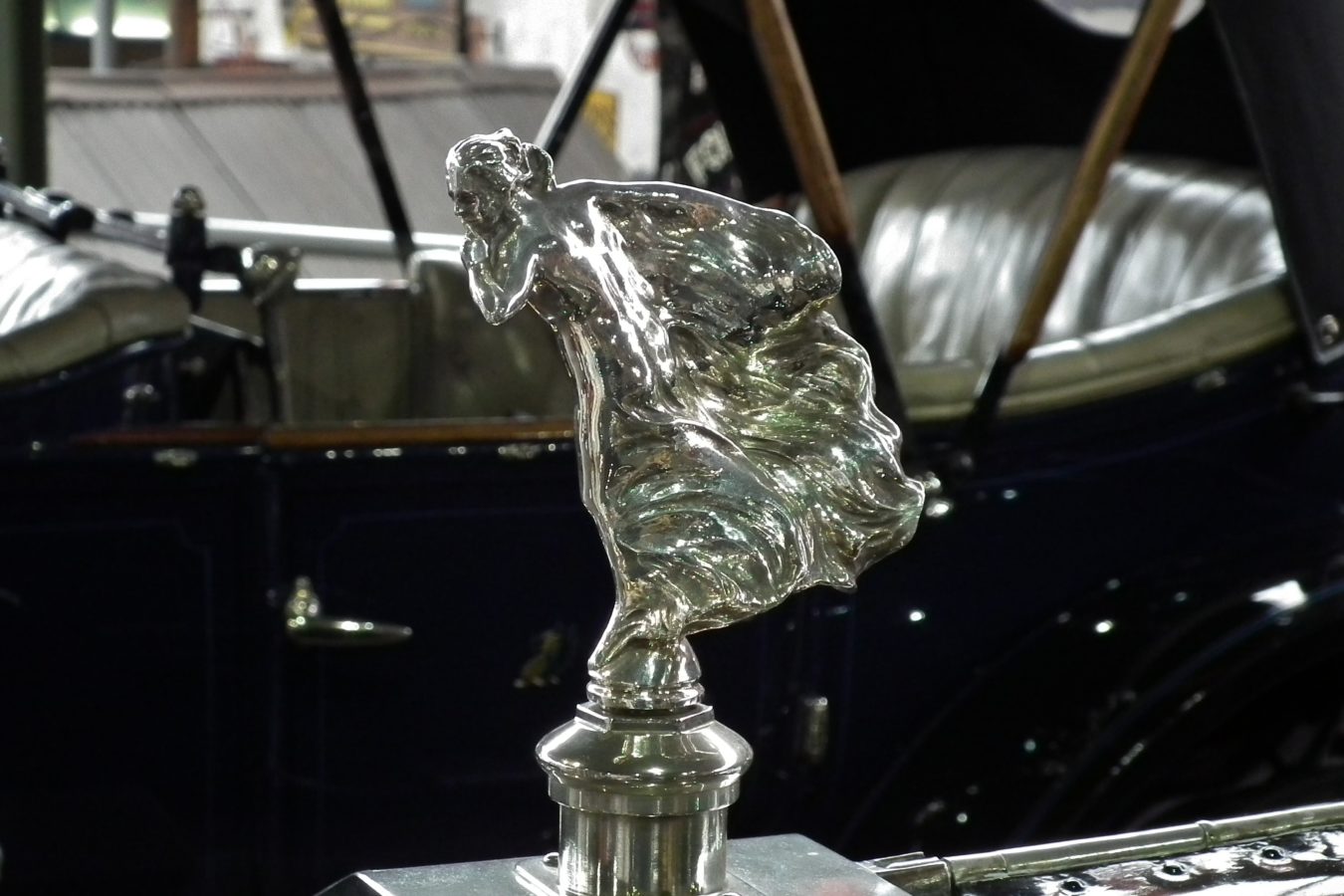
After seeing this first model, Claude Johnson, managing director of Rolls Royce, asked Sykes to design a graceful mascot figure that would ornament all future Rolls Royce cars. His brief was to convey the spirit of Rolls Royce namely, ‘speed with silence, the absence of vibration, the mysterious harnessing of great energy, and a beautiful living organism of superb grace’.
Johnson had in mind the Winged Victory of Samothrace (also known as Nike of Samothrace) statue in the Louvre. Winged Victory (or Nike) is the goddess of strength, speed, and victory and is often seen with wings.
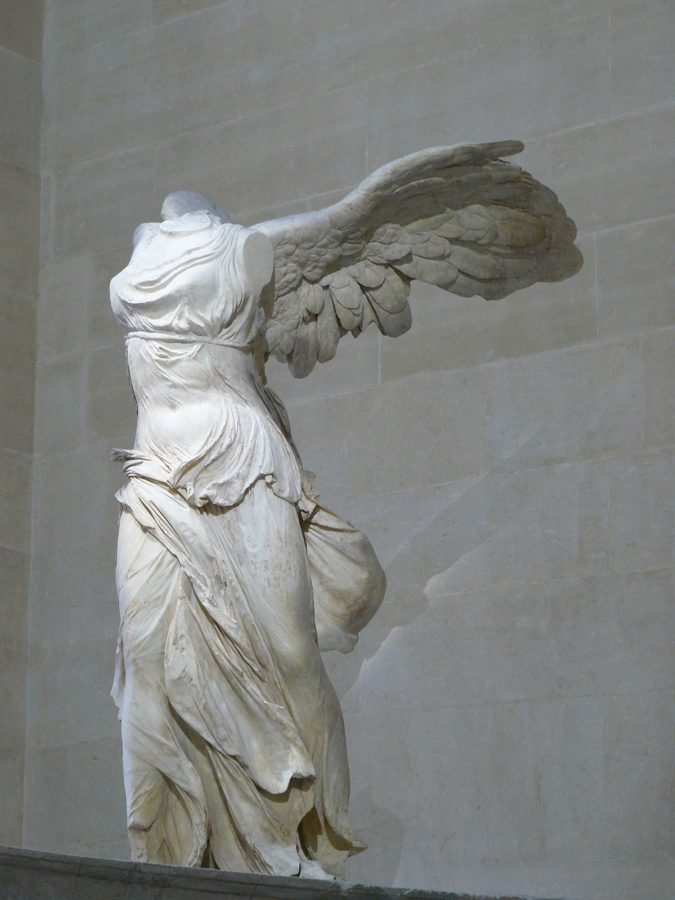
But it seems Sykes felt a more feminine, softer representation was needed and he continued to use Thornton as his inspiration, with that voluptuous cloth billowing out behind as her ‘wings’. However, just like the Nike of Samothrace, she faces the wind, with a sense of movement and triumph. We may not adorn our ships with figureheads anymore, but the notion of the figurehead signifying artistic skill, prestige, and ownership lives on in the luxury car market.
According to sources, the secret passion between Montagu and Thornton survived for 10 years, known to only a handful of close friends. Thornton had poor social and economic status, and Montagu was already married to Lady Cecil Victoria Constance Kerr.
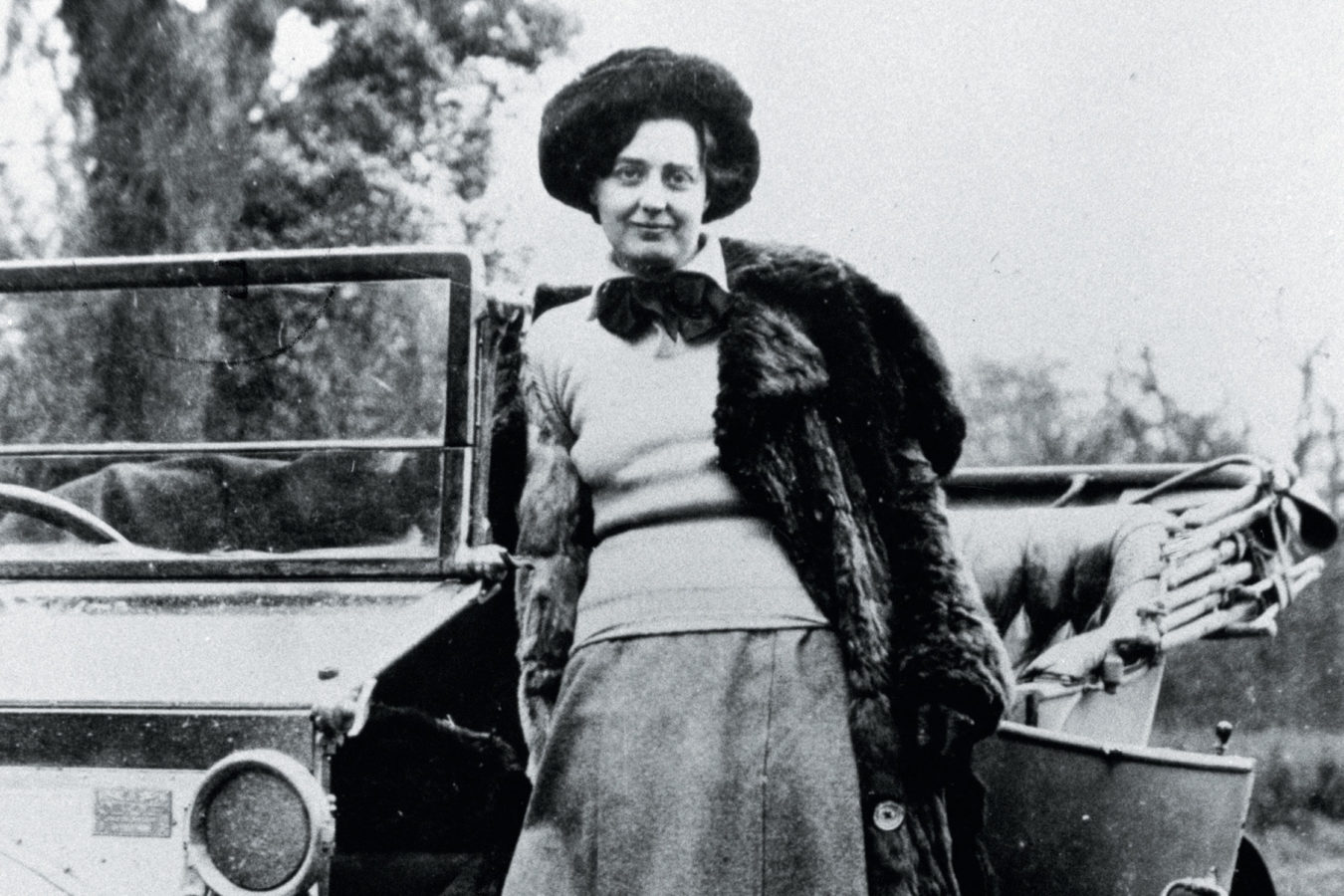
The figure has had eleven incarnations, names, and sizes, from The Whisper to The Spirit of Speed, to its current name of Spirit of Ecstasy, and is colloquially known as Emily, Silver Lady, and Flying Lady. Kneeling versions were introduced for smaller sports cars and the current version has a luxury defense mechanism. If anyone applies any pressure to the ornament, the car recognizes what is happening and immediately retracts the figure into the bonnet.
Originally silver-plated, the mascot was changed to nickel or chrome alloy after 1914, to dissuade theft. Today’s models have been digitally sculpted to resemble Eleanor Velasco Thornton and are hand-cast using the lost-wax process. Today your Spirit of Ecstasy can be stainless steel, 24-carat gold, illuminated frosted crystal, or even matte black and studded with diamonds!
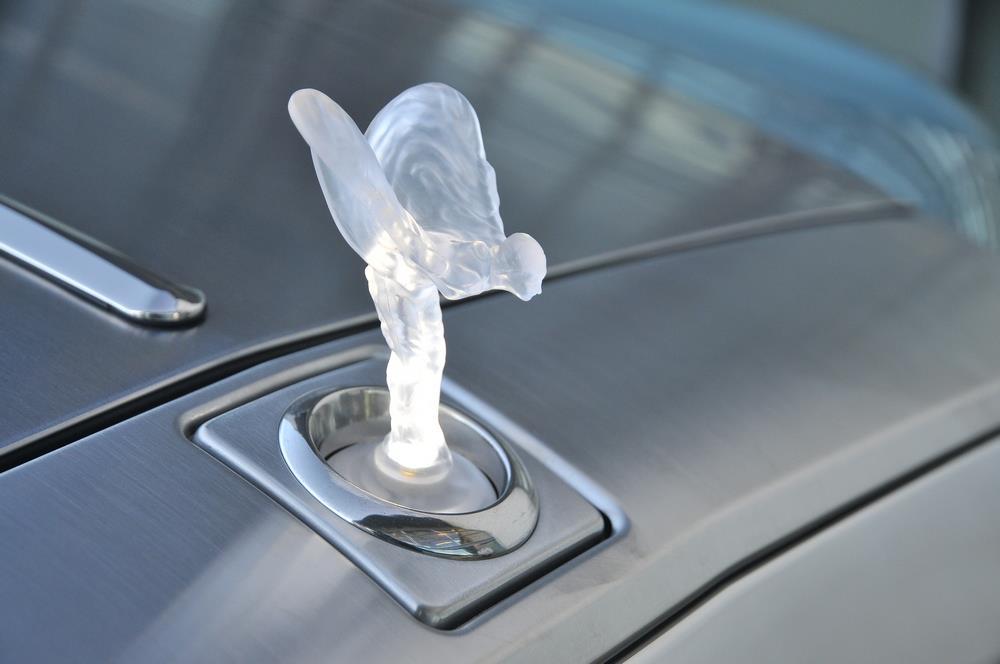
Our love story ends sadly, however. Eleanor died on 30 December 1915 when the SS Persia was torpedoed by a German U-boat. She was accompanying Lord Montagu to India. He was thought to have perished too but was saved after several days clinging to an upturned life raft.
DailyArt Magazine needs your support. Every contribution, however big or small, is very valuable for our future. Thanks to it, we will be able to sustain and grow the Magazine. Thank you for your help!